10 Years Later, Crazy Ex-Girlfriend Remains the Soundtrack to My Mental Health
Rachel Bloom's CW hit tackled internal struggles with humor, bops, and jazz hands like no other series or stage show before it or since.
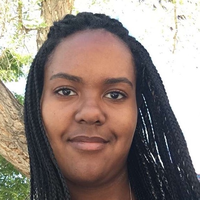
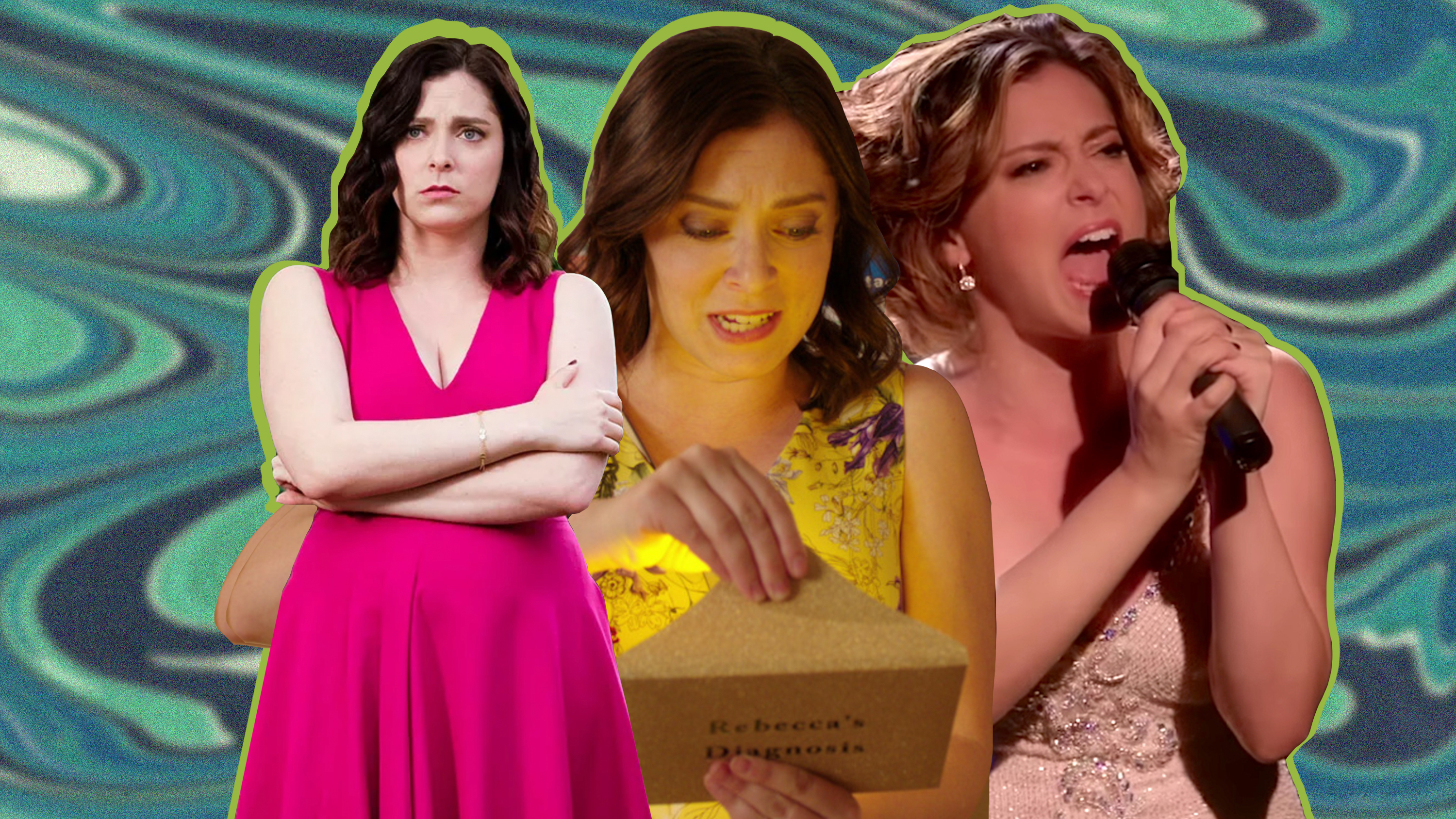
I have a habit of compulsively breaking out into song. If I recognize a song in a bar, restaurant, grocery store, or Sephora, I quickly start singing along. Sometimes I don’t even need music; my tendency to constantly make pop-culture references compels me to think of the perfect track to match the moment I’m living, and I can’t help but belt it out. So of course, after I left the appointment where my psychiatrist confirmed that I had ADHD, a song burst out of me like a reflex: “A Diagnosis,” from the TV series Crazy Ex-Girlfriend.
On October 12, 2015, The CW premiered Rachel Bloom and Aline Brosh McKenna’s tongue-in-cheek musical comedy about Rebecca Bunch (Bloom), a hot-shot lawyer looking for a fresh start by moving to West Covina, California—which just so happens to be where her summer-camp ex-boyfriend Josh Chan (Vincent Rodriguez III) lives. Over four seasons, the show transformed into an astute, devastating, still-musical, surprisingly-poop-joke-filled character study, following Rebecca’s emotional highs and lows until eventually getting diagnosed with borderline personality disorder in season 3. 10 years later, the series stands as not only a marvel of television, but also as one of the most innovative, empathetic musicals about mental illness ever written.
The musical numbers in Crazy Ex-Girlfriend are essential to the show. They show what’s going on in Rebecca’s head, which she confirms in the series finale. Whether the track pays homage to a classic musical like Oklahoma or blows the season’s budget to evoke Beyoncé, the sequences are how she sees the world and processes her emotions; there’s even proof that the songs don’t always skew to real life. (Greg isn’t actually asking Rebecca to settle for him when he asks her out in season 1’s fourth episode.) As the adage goes, musical theater is a world where, when the emotion becomes too strong for speech, you sing. Rebecca’s very active fantasy life takes the root of the genre to a new level.
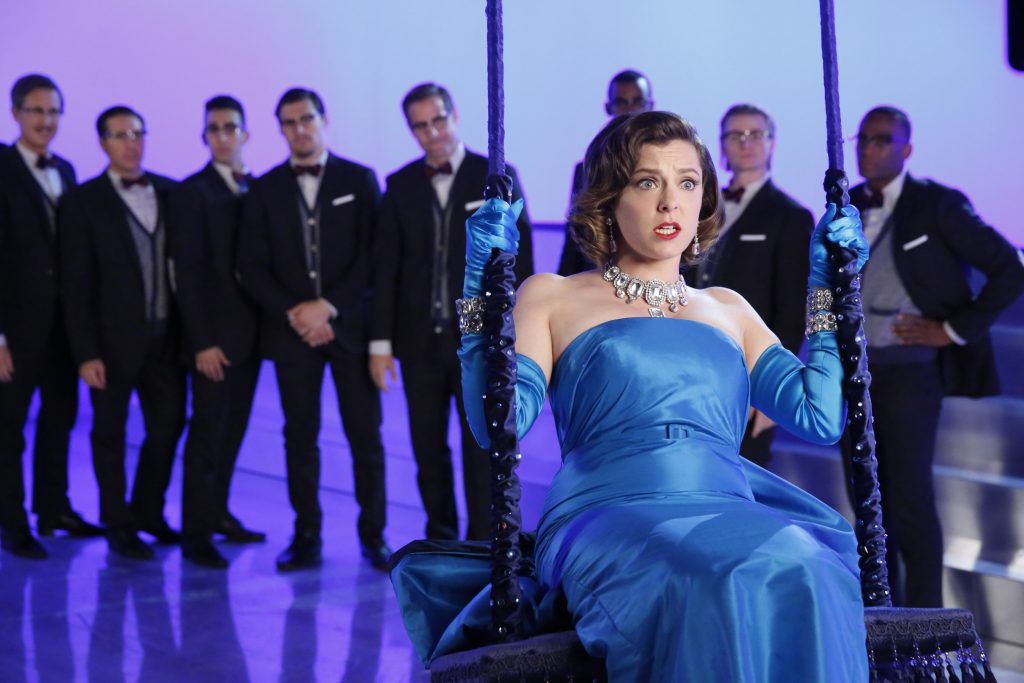
Rebecca (Rachel Bloom) channels Marilyn Monroe for season 2's "The Math of Love Triangles."
Just as mental-health awareness has grown in society over the past 40 years, the theater industry has only recently seen mental health become an overt theme of a stage musical. Shows like Next to Normal, Spring Awakening, Fun Home, and Dear Evan Hansen explore subjects like depression, anxiety, suicide, and addiction, and have brought important discussions to a scene often dominated by light narratives and jukebox musicals. There are songs from these shows, like “Don’t Do Sadness,” “The Dark I Know Well,” and “Everything Else,” that have helped me get out my pent-up angst since I was a teenager. But when I sing them, it doesn’t feel like I’m singing my own story. Only Crazy Ex-Girlfriend has given me that feeling, like those songs were plucked from the exact emotions in my brain.
The biggest difference between Crazy Ex-Girlfriend and these musicals is the lightness with which the show’s original songs from songwriters Bloom, Jack Dolgen, and the late Adam Schlesinger—handle mental illness. The series is a comedy at its core (again, so many poop jokes). Except for a few moments that are somber by necessity, including Rebecca’s suicide attempt, that levity comes through. It’s why characters like Rebecca and Paula (Donna Lynne Champlin) are so lovable, even when they’re doing morally ambiguous things. Extending to the musical numbers, the comedic storytelling shines through in unexpected lyric choices that deliver a sort of heightened relatability. For example, in “You Stupid Bitch,” Rebecca’s monument to self-loathing in season 1, episode 11, she sings, “You're just a poopy little slut who doesn't think/And deceives the people she loves.” Every time I re-listen to that song, once “poopy little slut” makes me chuckle and gets my guard down, I briefly drop that instinctual aloofness that cocoons my earnest heart, so I can feel how tremendously that second bar makes me feel seen.
If the sole point of 'Crazy Ex-Girlfriend' was to have anyone who has ever struggled with their mental health relate to even one song, then [Bloom] has undoubtedly succeeded.
Despite taking place more than halfway through the show, “A Diagnosis” is a perfect “I Want” song, a necessity in every musical where the lead lays out their motivation at the start of their journey. These numbers often make or break a whole show; if audiences don’t fall in love with the character during that one song, often the second or third in a show, then the rest are for naught.
By the time Rebecca sings “A Diagnosis,” it’s far from an introduction because we already know her so well. We’ve seen Rebecca at her highest highs and lowest lows; we can see through most of her delusions and understand the biggest moments of her life. We’ve rooted for her, despite the stalking, gaslighting, and manipulation she’s employed over two seasons and three love interests, and we’re excited for her to begin working on herself. It’s a level of immersion, built on over 24 hours with a character, that the traditional structure of a two- or three-hour musical just can’t hit. The longer, less regimented flow of a TV series also better mirrors real life, where a person’s story is never linear; just look at how much each season’s theme song changes.
Get exclusive access to fashion and beauty trends, hot-off-the-press celebrity news, and more.
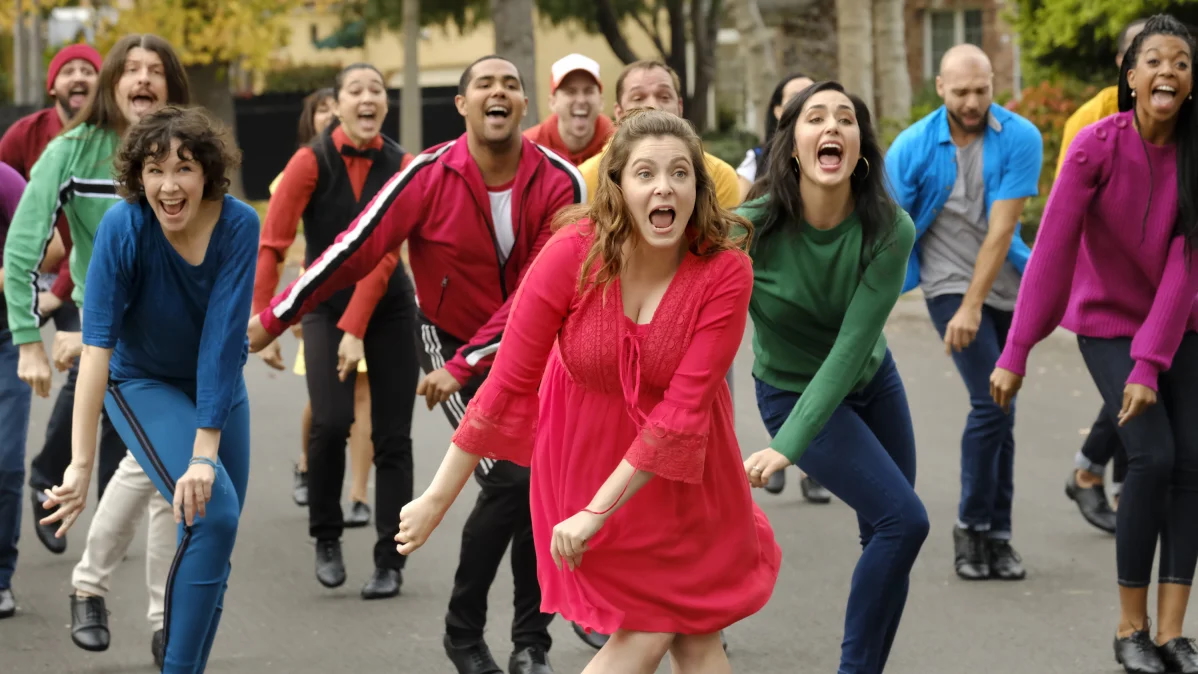
Rebecca (Rachel Bloom) in the Emmy-winning number "Anti-Depressants Are So Not A Big Deal."
The character Rebecca and I go a layer beyond universal experiences. I’ve also moved to a random city where I knew no one, looking for a new start. I also used to employ romantic drama as a distraction from any underlying issues. Like Rebecca’s coda in the series finale, I also realized that romantic love isn’t the be-all end-all of life, and true happiness is found outside of it. (Also, we both suffer from “Heavy Boobs.”) Though I typically skip over the more dour tracks for breezy favorites like “Let’s Generalize About Men” and “My Sperm Is Healthy,” I wish I could be as expressive with my emotions as Rebecca is. Once I get through the vicarious embarrassment, I admire how raw and unfiltered “You Stupid Bitch” and “My Diagnosis” are, how Rebecca’s brave enough to declare what she wants out loud. I think of her when I fight against the notion that telling someone your dream is somehow jinxing yourself.
Speaking at a Hollywood Reporter event in 2019, Bloom opened up about how her own experiences with anxiety, depression, and “intrusive OCD thoughts” inspired her work on the series. “The worst thing about it—I know for me and I think for a lot of other people—is you feel like you’re the only one. Words like ‘depression,’ it’s just a word. It doesn’t mean the way you’re feeling, and so to see that other people have felt this exact same thing…I’m not the weird one.” If the sole point of Crazy Ex-Girlfriend was to have anyone who has ever struggled with their mental health relate to even one song, then she has undoubtedly succeeded.
Though Crazy Ex-Girlfriend was beloved by critics and received four Emmys during its original run, it’s also known as one of TV’s least-watched shows to complete its run without an early cancellation. Still, I’m not the only one who feels that the cult-loved series is the soundtrack to their inner life. During its airing, the series put on an eight-city national tour and a series finale concert special, a raucous celebration of the soundtrack in a theater packed with fans. To celebrate the anniversary this October, the cast reunited for two weekends of reunion concerts that quickly sold out. Bloom has also teased the possibility of doing a stage show, so CEG will officially join the official canon of mental-health musicals. But whether or not it hits the stage, Crazy Ex-Girlfriend has moved the subgenre forward, and it can rest assured that all of its fans will be singing its songs.
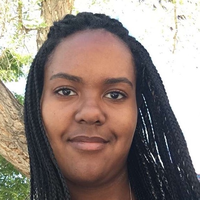
Quinci LeGardye is a Culture Writer at Marie Claire. She currently lives in her hometown of Los Angeles after periods living in NYC and Albuquerque, where she earned a Bachelor’s degree in English and Psychology from The University of New Mexico. In 2021, she joined Marie Claire as a contributor, becoming a full-time writer for the brand in 2024. She contributes day-to-day-content covering television, movies, books, and pop culture in general. She has also written features, profiles, recaps, personal essays, and cultural criticism for outlets including Harper’s Bazaar, Elle, HuffPost, Teen Vogue, Vulture, The A.V. Club, Catapult, and others. When she isn't writing or checking Twitter way too often, you can find her watching the latest K-drama, or giving a concert performance in her car.